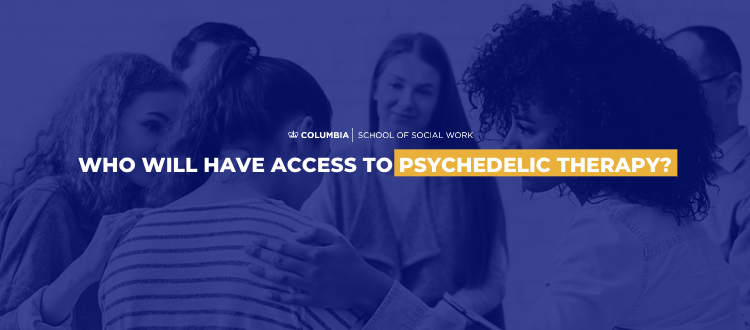Psychedelic-assisted therapy helped Prince Harry heal from trauma. Training a cadre of nurses and social workers can give other survivors the same chance.
Loss is a great equalizer. Despite discrepancies in money, privilege, and opportunities, people who’ve lost a parent at a young age often feel an immediate bond with one another. Yet how they recover and move through life may depend on their access to appropriate care.
In his new autobiography, Spare (Random House, 2022), Britain’s Prince Harry revealed that using psychedelics helped ease the persistent grief and trauma he experienced at the sudden and violent loss of his mother.
Harry was just 12 years old in 1997 when Princess Diana died in a car accident. Harry and his older brother, William, were directed not to cry as they walked behind her casket in an hours-long funeral that was televised around the world.
Warm, affectionate, and fun-loving, Diana’s loss created a void in her sons’ lives that no one stepped in to fill. Both boys resorted to magical thinking, a thought pattern common in people who’ve suffered a sudden and traumatic loss.
“For a long time, I just refused to accept that she was gone,” Harry told Anderson Cooper in a 60 Minutes interview. He believed for “many, many years,” he said, that her disappearance was “all part of a plan,” that she was in hiding and that at some point “she would call us and that we would go and join her.”
As an adolescent and young man, Harry self-medicated with drugs and alcohol, yet his life was dogged by grief and rage — a state of mind he called “the red mist.” In his 30s he turned to trying psychedelics, an experience he describes in his book:
“They didn’t simply allow me to escape reality for a while, they let me redefine reality. Under the influence of these substances I was able to to let go of rigid preconcepts, to see that there was another world beyond my heavily filtered senses, a world that was equally real and doubly beautiful — a world with no red mist, no reason for red mist…. After the psychedelics wore off my memory of that world would remain: This is not all there is.”
Harry told Anderson Cooper he believed the therapy could be effective for others in a similar situation. “I would never recommend people to do this recreationally,” he said, “but doing it with the right people, if you are suffering from a huge amount of loss, grief, or trauma, then these things have a way of working as a medicine.”
Harry does the world a service by being open about his mental health struggles and by bringing attention to the potential benefits of psychedelic-assisted therapy for people dealing with grief and PTSD. And now, the medical establishment must ensure that these therapies are available to everyone who can benefit from them, not just the very privileged, or even those with the best health insurance.
The Columbia School of Social Work and the University of Pennsylvania School of Nursing have embarked on an intitiative to train practitioners in therapy that incorporates psychedelics. Two grants totalling $1 million are funding the development of an educational training curriculum to be offered to students enrolled at the two Schools. Later, the plan will target post-graduate nurses and social workers. Upon successful implementation, the curriculum will eventually be made available at little or no cost for other institutions to adopt.
Says Brooke Stott, program manager, “As psychedelic-assisted therapies continue to gain mainstream acceptance, the demand for qualified providers is likely to skyrocket. With an average cost of post-graduate training programs of around $10,000, more colleges and universities should build that training into their degree programs.”
Quoted in a November 2022 article in the magazine DoubleBlind, Associate Professor Heidi Allen explains that an adequate number of providers is one crucial link of many in the chain that will make psychedelic-assisted therapy accessible and affordable.
“All of that is going to have to align toward access,” she says, “because if at any given point any of those is misaligned there is going to be a drop in people’s ability to get the treatment.” Without the right structure in place, she adds, “absolutely this is a treatment that is going to increase mental health disparities.”
The Columbia-Penn collaboration is, we hope, just one early step in making this groundbreaking therapy accessible to all.
Want to know more?
Social workers, nurses, and others who wish to be among the first to learn about the Psychedelic Therapy Training Program can sign up for a mailing list and online learning series.
Mailing list and registration
Course description
Watch the first class in the series
